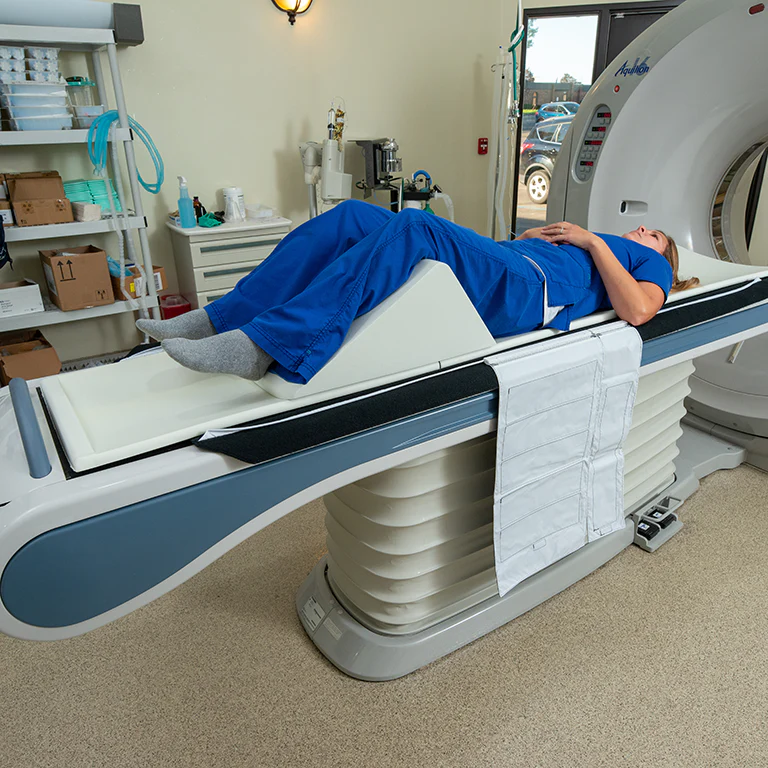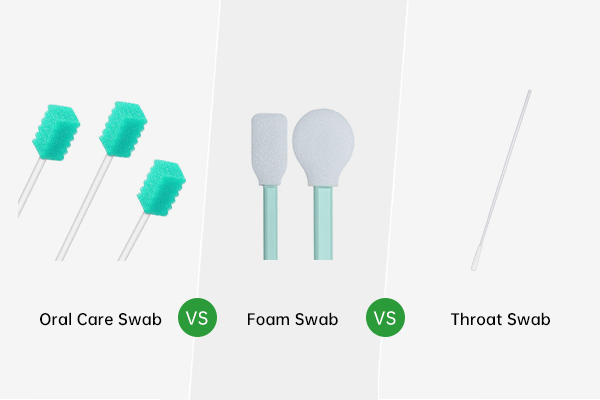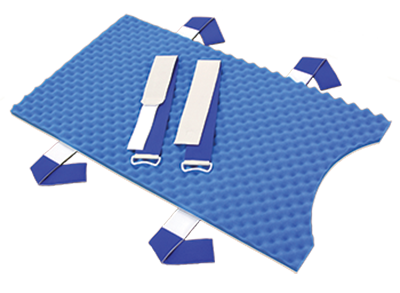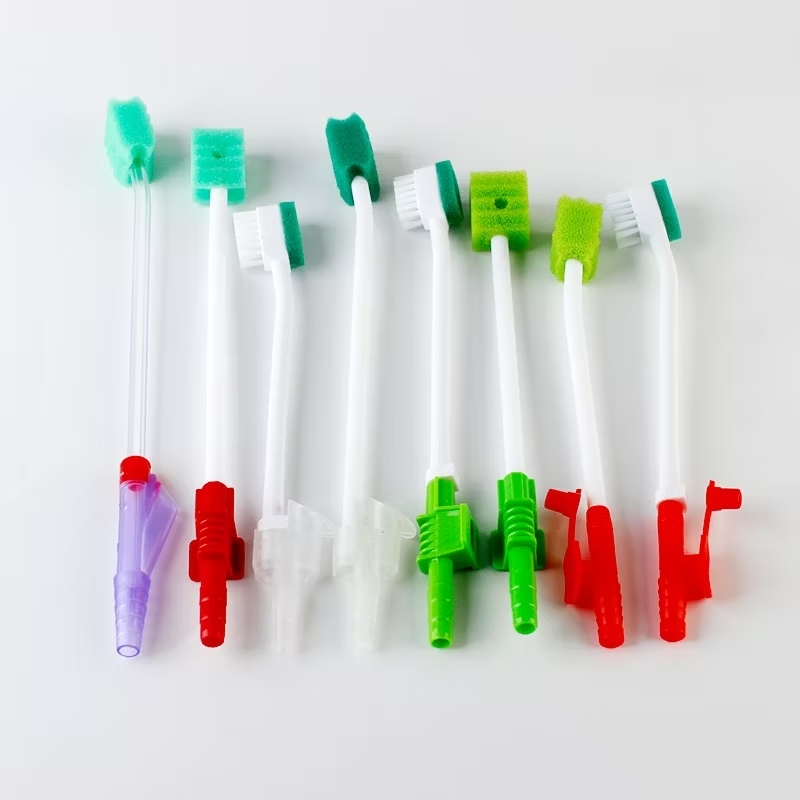MRI is a crucial diagnostic tool, but its effectiveness depends on patient positioning and movement. Custom positioning pads help optimize patient alignment, reduce repositioning, and improve scan quality. This article explores how these pads enhance imaging accuracy, reduce scan time, and ensure patient comfort and safety.
The Challenge of Positioning in MRI Scans
MRI scans require precise positioning of the patient to ensure that the areas of interest are captured clearly and without distortion. Even slight movements during the scan, such as shifting, twitching, or breathing, can lead to artifacts (distortions) in the images, which may result in inaccurate or incomplete results. The challenge of maintaining the correct position for an extended period, typically between 20 to 60 minutes, is particularly pronounced for patients who are uncomfortable, in pain or have difficulty remaining still.
For instance, a patient with back pain or musculoskeletal issues may find it difficult to stay in one position for the duration of the scan, leading to repositioning by the technician. This not only increases the total time required for the MRI but also introduces the potential for further discomfort or even additional physical strain. Moreover, frequent repositioning can disrupt the scan, leading to suboptimal images and potentially necessitating additional scans to obtain the necessary clarity and detail.
To address these challenges, custom positioning pads are increasingly being used in MRI settings. These pads provide tailored support to the patient, helping them maintain the optimal position for the scan and reducing the likelihood of movement during the procedure.
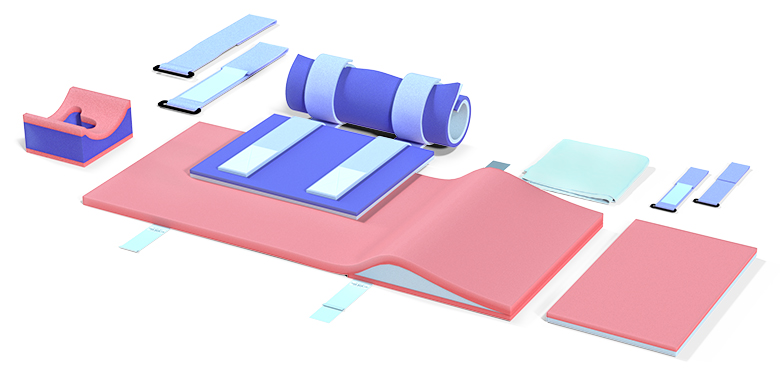
What Are Custom Positioning Pads?
Custom positioning pads are specialized, ergonomically designed cushions or supports that are used to position and stabilize patients during MRI scans. Unlike standard positioning tools, such as generic pillows or foam wedges, custom pads are designed to fit the unique contours of the patient’s body, providing more targeted support and comfort.
These pads are often made from soft, flexible materials such as memory foam, gel, or air, which conform to the patient’s body shape, reducing pressure points and minimizing discomfort. Customization refers to tailoring the shape, firmness, and positioning of the pads based on the patient’s individual anatomy, medical condition, and the specific area being imaged. For example, a custom positioning pad for a patient undergoing a brain MRI will be quite different from one used for a musculoskeletal scan, as each requires specific adjustments to maintain alignment and comfort.
Depending on the scan and the patient’s health, positioning pads can be utilized in a number of ways:
- Head and Neck Positioning: For scans of the brain or cervical spine, a custom headrest or neck support pad ensures that the patient’s head remains immobile and aligned throughout the scan.
- Spinal or Musculoskeletal Imaging: Custom pads can be used to support the spine and limbs during scans of the back, joints, or extremities, ensuring that the body remains in a stable position and reducing the risk of discomfort or repositioning.
- Pregnancy or Pediatric Patients: Custom positioning pads can be designed for pregnant women or children, who may require specialized support to maintain a safe and comfortable position during the scan.
By providing tailored support, these custom pads enable the patient to remain in the correct position with minimal effort, reducing the need for frequent adjustments and ensuring better imaging results.
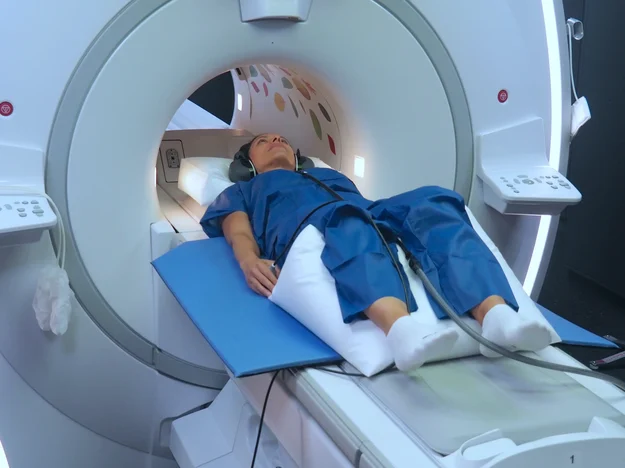
How Custom Positioning Pads Improve MRI Scan Times
The reduction in MRI scan times is one of the key benefits of using custom positioning pads. By offering better support, comfort, and alignment, these pads help patients maintain the desired position without the need for repositioning, which can significantly streamline the scanning process.
1. Minimizing the Need for Repositioning
When a patient is in a comfortable and stable position, the likelihood of movement during the scan is greatly reduced. With custom foam positioners, the patient’s body is effectively “locked” into the correct position, minimizing involuntary shifts that might require the technician to stop and reposition the patient. Patients who are uncomfortable or unable to stay still because of pain, anxiety, or medical issues can especially benefit from this.
For example, patients undergoing an MRI of the lumbar spine may find it difficult to stay in one position for an extended period due to back pain. Custom lumbar support pads can relieve pressure points and maintain spinal alignment, allowing the patient to remain still and reducing the need for adjustments. As a result, the entire scan can be completed more quickly, saving time for both the technician and the patient.
2. Enhancing Scan Efficiency
When a patient is positioned correctly from the start, the quality of the scan improves, which can reduce the time required to obtain clear and usable images. In some cases, poorly positioned patients may result in scans that need to be repeated due to motion artifacts or misalignment. Custom positioning pads help prevent these issues by ensuring optimal positioning, thus improving the accuracy and clarity of the images from the outset. With fewer repeat scans necessary, the overall time spent in the MRI suite is reduced.
Moreover, when the patient is positioned correctly the first time, the technician can spend less time making adjustments and more time focusing on capturing high-quality images. This can be particularly important in high-volume imaging centers where efficiency is critical.
3. Improving Patient Comfort and Reducing Anxiety
One of the leading causes of patient movement during an MRI scan is anxiety or discomfort, which can cause patients to fidget, twitch, or even request the scan to be stopped. Custom positioning pads not only help to keep the patient in place but also improve their comfort by providing cushioning and support where it’s needed most. When patients are comfortable, they are less likely to move or shift during the scan, resulting in fewer interruptions and a more efficient process.
Patients who suffer from discomfort, claustrophobia, or other ailments that make it difficult to stay motionless can especially benefit from this. With the right custom positioning pad, the patient is more likely to feel secure, relaxed, and supported throughout the procedure.
How Custom Positioning Pads Improve MRI Imaging Accuracy
Accurate imaging is paramount in an MRI scan. When the patient is positioned properly, the MRI machine can generate clearer, more detailed images, which can help clinicians make more accurate diagnoses. Custom positioning pads help to improve the overall quality of the scan by:
1. Maintaining Optimal Alignment
The primary role of custom positioning pads is to ensure that the patient’s body is properly aligned for the scan. When a patient is positioned correctly, the area of interest is clearly imaged, and there is less risk of distortion or artifacts caused by improper alignment. For example, in brain imaging, slight misalignment of the head can lead to blurry or distorted images, which may obscure important details. A custom headrest pad ensures that the head remains in the ideal position for the scan, reducing the risk of these issues.
2. Reducing Motion Artifacts
Motion artifacts are one of the most common problems in MRI imaging, and they can lead to inaccurate results that may require the scan to be repeated. Custom positioning pads help to stabilize the patient’s body, particularly areas that are prone to movement, such as the head, neck, or limbs. By minimizing movement, these pads reduce the likelihood of motion artifacts and improve the overall accuracy of the scan.
3. Improving Image Resolution
With better positioning comes better image resolution. Custom pads ensure that the targeted area of the body is in the center of the MRI scanner, where the most detailed and high-resolution images are captured. By preventing misalignment, custom positioning pads improve the clarity and resolution of the images, leading to more precise diagnoses.
Conclusion
Custom positioning pads enhance MRI scan efficiency and accuracy by ensuring optimal patient positioning, reducing repositioning needs, and improving image quality. Patients have a more comfortable experience as a result, and medical professionals are able to diagnose patients more accurately. As technology evolves, these pads will offer even greater comfort and precision, making them essential for modern medical imaging.

